Honda Jazz vs Vauxhall Mokka - Differences and prices compared
Compare performance (122 HP vs 281 HP), boot space and price (23100 £ vs 23000 £ ) at a glance. Find out which car is the better choice for you – Honda Jazz or Vauxhall Mokka?
Costs and Efficiency:
When it comes to price and running costs, the biggest differences usually appear. This is often where you see which car fits your budget better in the long run.
Vauxhall Mokka has a slight advantage in terms of price – it starts at 23000 £ , while the Honda Jazz costs 23100 £ . That’s a price difference of around 52 £.
Fuel consumption also shows a difference: Honda Jazz manages with 4.50 L and is therefore barely noticeable more efficient than the Vauxhall Mokka with 4.90 L. The difference is about 0.40 L per 100 km.
Engine and Performance:
Power, torque and acceleration are the classic benchmarks for car enthusiasts – and here, some clear differences start to show.
When it comes to engine power, the Vauxhall Mokka has a significantly edge – offering 281 HP compared to 122 HP. That’s roughly 159 HP more horsepower.
In acceleration from 0 to 100 km/h, the Vauxhall Mokka is decisively quicker – completing the sprint in 5.90 s, while the Honda Jazz takes 9.40 s. That’s about 3.50 s faster.
There’s also a difference in torque: Vauxhall Mokka pulls distinct stronger with 345 Nm compared to 253 Nm. That’s about 92 Nm difference.
Space and Everyday Use:
Whether family car or daily driver – which one offers more room, flexibility and comfort?
Both vehicles offer seating for 5 people.
In curb weight, Vauxhall Mokka is minimal lighter – 1294 kg compared to 1302 kg. The difference is around 8 kg.
In terms of boot space, the Vauxhall Mokka offers somewhat more room – 350 L compared to 304 L. That’s a difference of about 46 L.
When it comes to payload, Vauxhall Mokka hardly perceptible takes the win – 400 kg compared to 388 kg. That’s a difference of about 12 kg.
Who wins the race in the data check?
The Vauxhall Mokka is far ahead overall in the objective data comparison.
This result only shows which model scores more points on paper – not which of the two cars feels right for you.
Costs and Consumption
View detailed analysis
Engine and Performance
View detailed analysis
Dimensions and Body
View detailed analysis
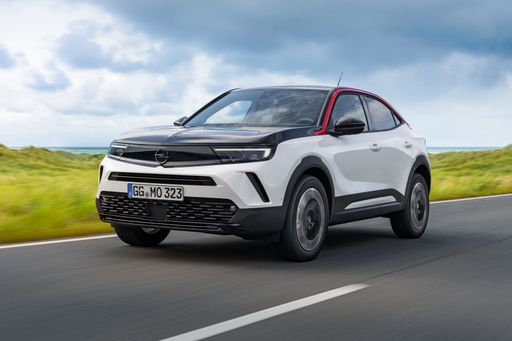
Vauxhall Mokka
Honda Jazz
The Honda Jazz is a supremely practical small hatch that hides clever packaging and more usable space than it lets on, with friendly styling and an unfussy charm. It’s economical to run, easy to park and perfect for buyers who want reliable, versatile daily motoring without the hassle.
details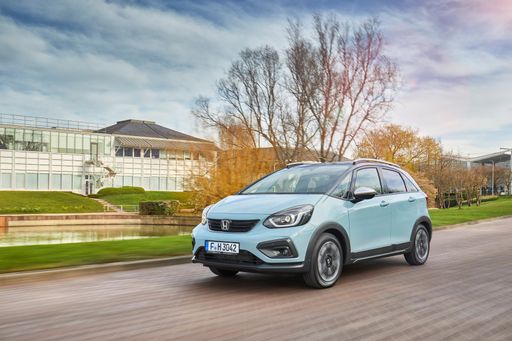
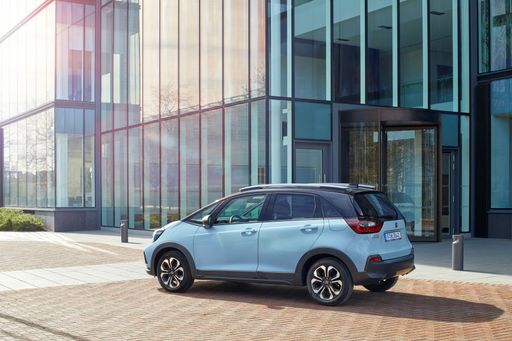
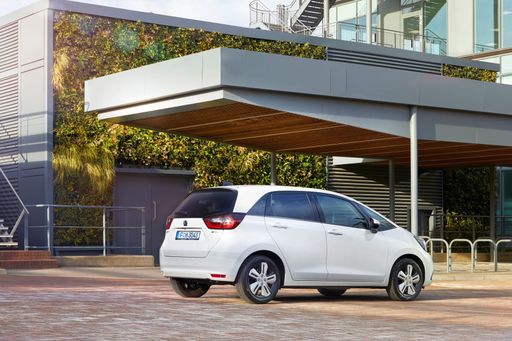
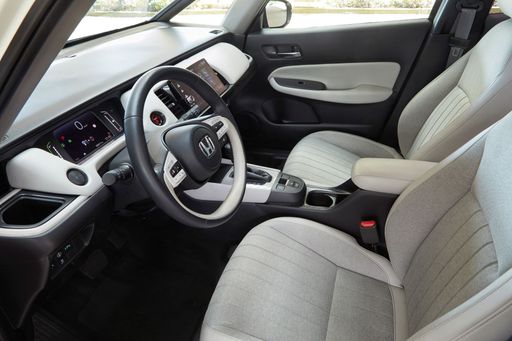
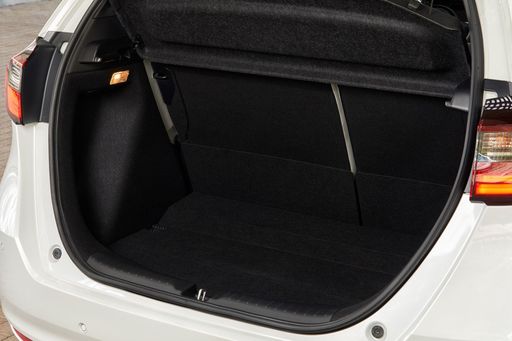
Vauxhall Mokka
The Opel Mokka cuts a smart, modern silhouette that feels right at home in the city while still turning heads on the open road. It's a practical, easy-to-live-with crossover that blends comfy driving manners with enough flair and tech to keep daily commutes interesting — and it won’t make you regret trading up.
details
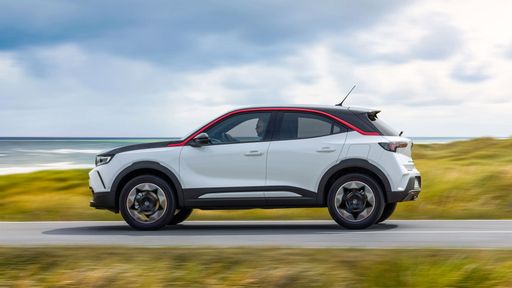
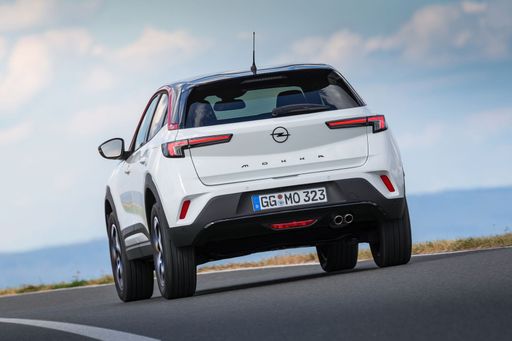
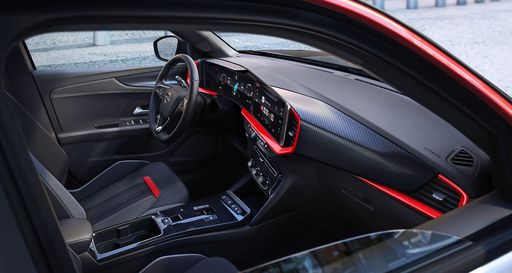
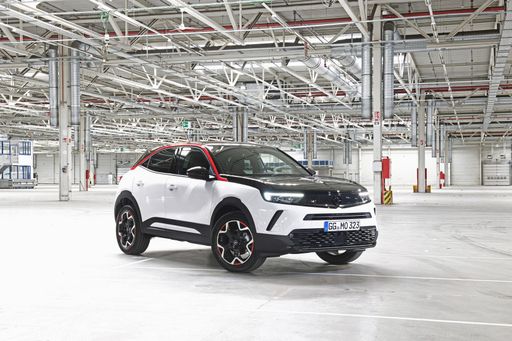
Costs and Consumption |
|
|---|---|
|
Price
23100 - 26700 £
|
Price
23000 - 40500 £
|
|
Consumption L/100km
4.5 - 4.8 L
|
Consumption L/100km
4.9 - 5.7 L
|
|
Consumption kWh/100km
-
|
Consumption kWh/100km
15.4 - 18.5 kWh
|
|
Electric Range
-
|
Electric Range
336 - 403 km
|
|
Battery Capacity
-
|
Battery Capacity
51 kWh
|
|
co2
102 - 108 g/km
|
co2
0 - 129 g/km
|
|
Fuel tank capacity
-
|
Fuel tank capacity
44 L
|
Dimensions and Body |
|
|---|---|
|
Body Type
Hatchback
|
Body Type
SUV
|
|
Seats
5
|
Seats
5
|
|
Doors
-
|
Doors
5
|
|
Curb weight
1302 - 1321 kg
|
Curb weight
1294 - 1672 kg
|
|
Trunk capacity
304 L
|
Trunk capacity
310 - 350 L
|
|
Length
-
|
Length
4150 mm
|
|
Width
-
|
Width
1787 mm
|
|
Height
-
|
Height
1506 - 1535 mm
|
|
Max trunk capacity
-
|
Max trunk capacity
1060 - 1105 L
|
|
Payload
369 - 388 kg
|
Payload
388 - 400 kg
|
Engine and Performance |
|
|---|---|
|
Engine Type
Full Hybrid
|
Engine Type
Electric, Petrol MHEV, Petrol
|
|
Transmission
Automatic
|
Transmission
Automatic, Manuel
|
|
Transmission Detail
CVT
|
Transmission Detail
Reduction Gearbox, Dual-Clutch Automatic, Manual Gearbox
|
|
Drive Type
Front-Wheel Drive
|
Drive Type
Front-Wheel Drive
|
|
Power HP
122 HP
|
Power HP
136 - 281 HP
|
|
Acceleration 0-100km/h
9.4 - 9.7 s
|
Acceleration 0-100km/h
5.9 - 9 s
|
|
Max Speed
-
|
Max Speed
150 - 209 km/h
|
|
Torque
253 Nm
|
Torque
230 - 345 Nm
|
|
Number of Cylinders
4
|
Number of Cylinders
3
|
|
Power kW
90 kW
|
Power kW
100 - 207 kW
|
|
Engine capacity
1498 cm3
|
Engine capacity
1199 cm3
|
General |
|
|---|---|
|
Model Year
2025
|
Model Year
2024 - 2025
|
|
CO2 Efficiency Class
C
|
CO2 Efficiency Class
A, C, D
|
|
Brand
Honda
|
Brand
Vauxhall
|
Is the Honda Jazz offered with different drivetrains?
The Honda Jazz is offered with Front-Wheel Drive.




